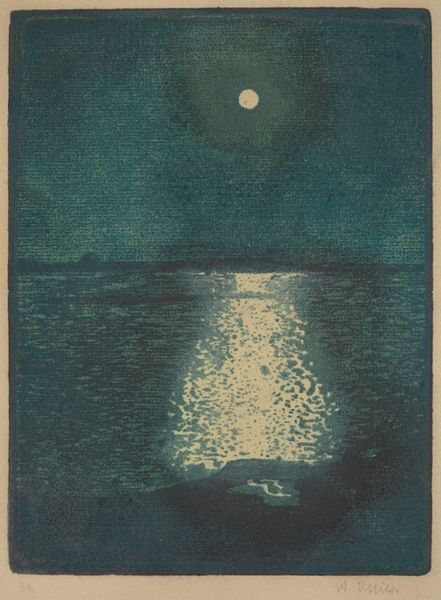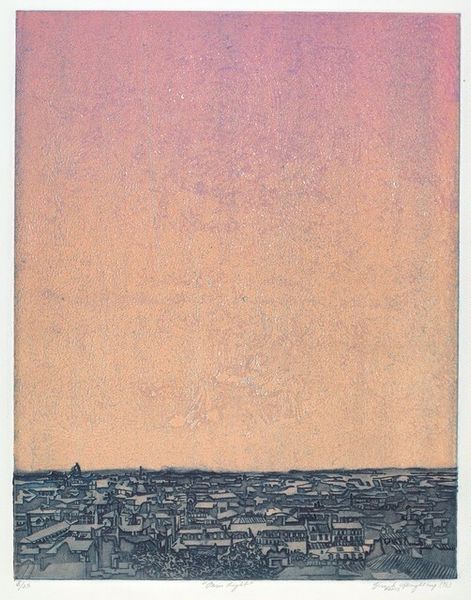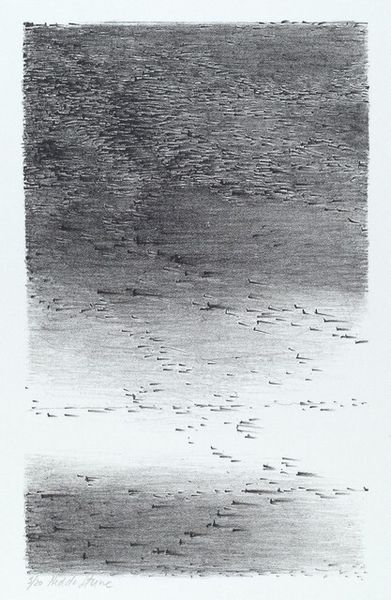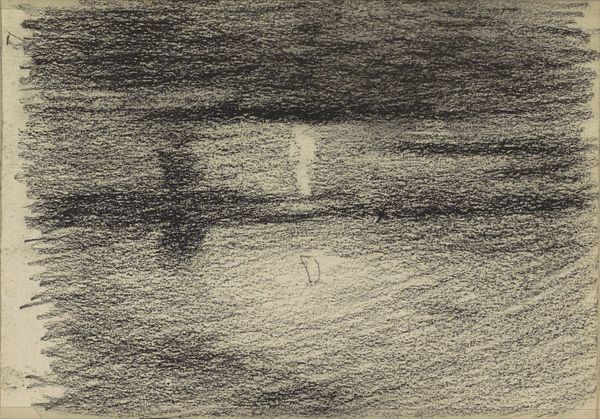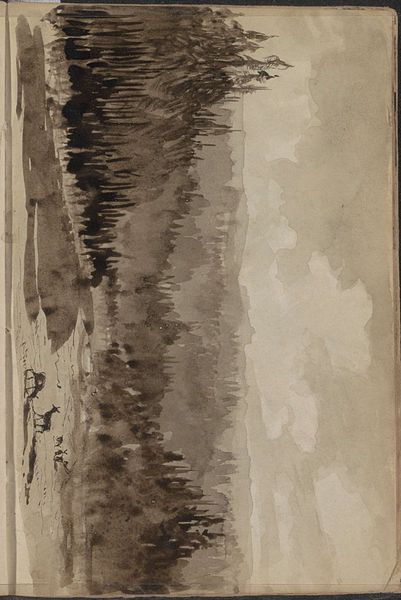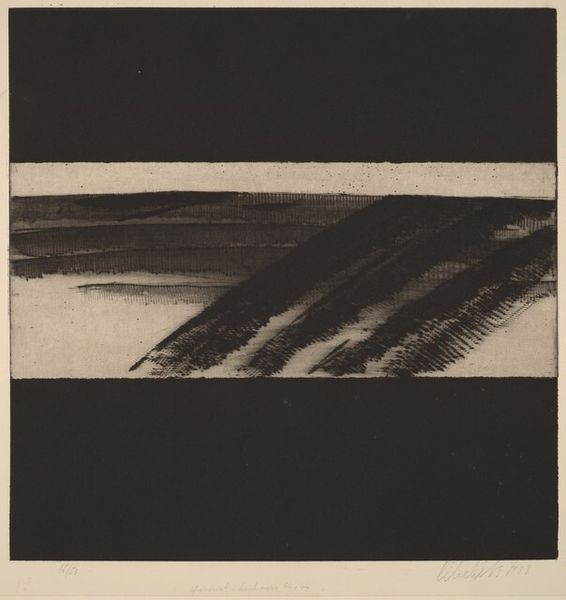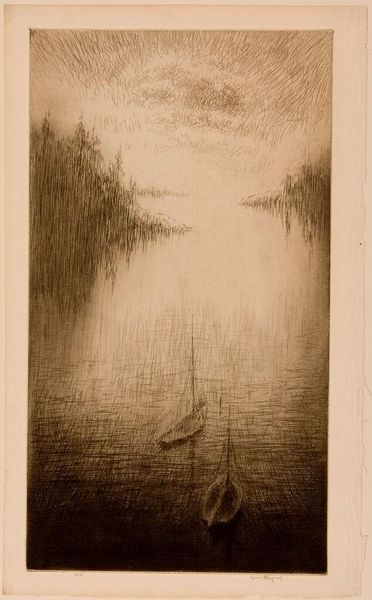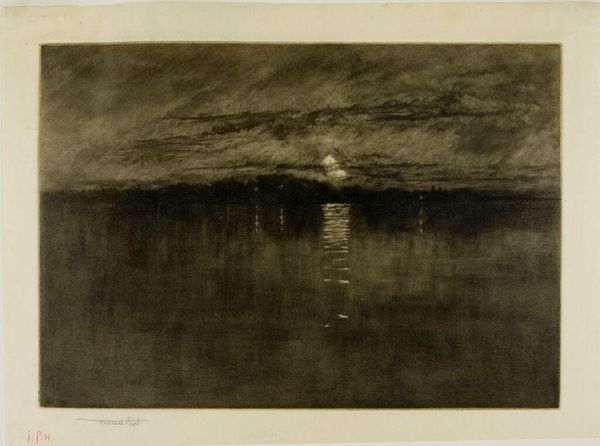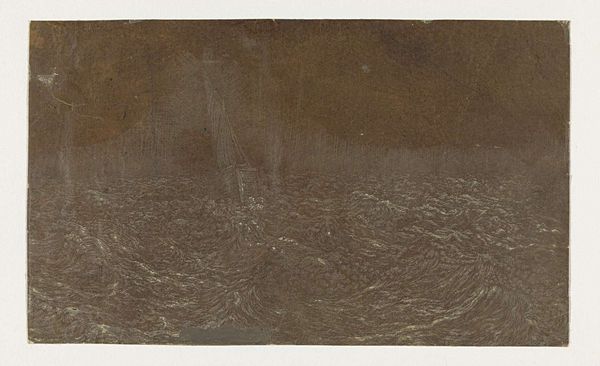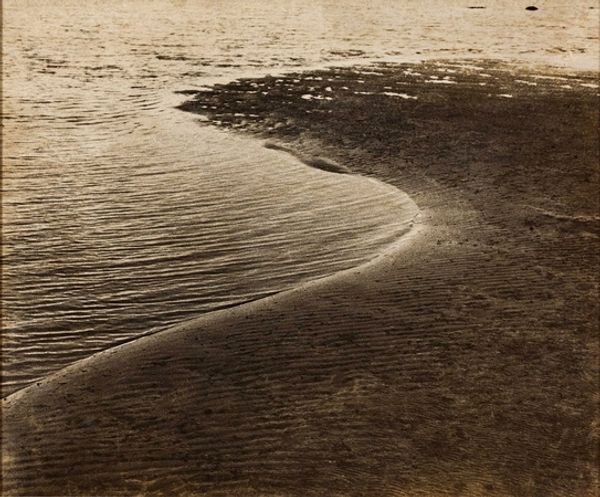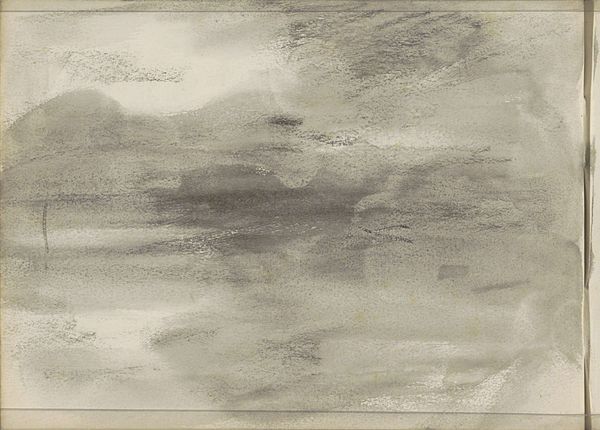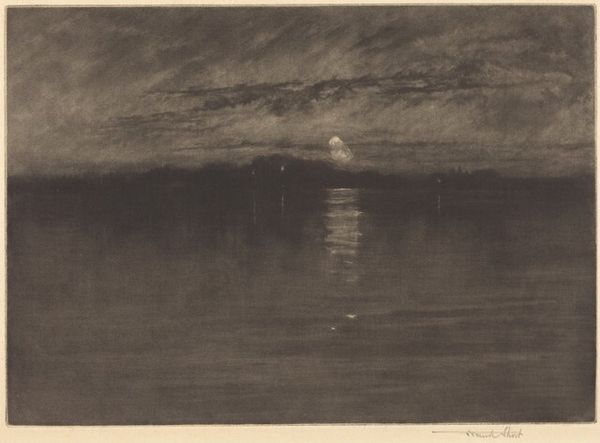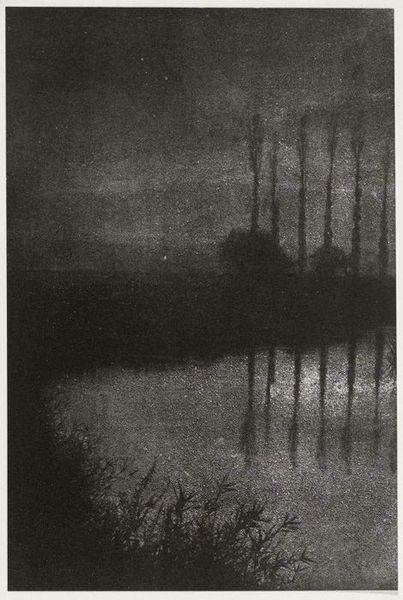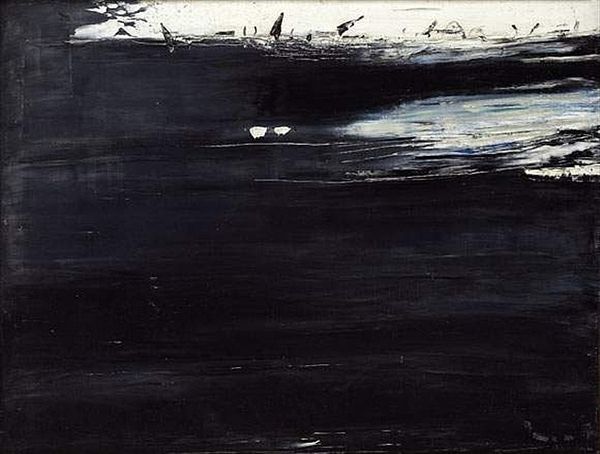
print, woodcut
#
water colours
# print
#
landscape
#
woodcut
#
line
#
symbolism
Dimensions: 338 mm (height) x 140 mm (width) (billedmaal)
Otto Eckmann created this moody woodcut titled 'Moonlight on the Sea', most likely in the late 1890s when he was exploring printmaking techniques. Eckmann's image presents us with a familiar Romantic trope: moonlight shimmering on water, nature's sublime beauty rendered with an almost spiritual intensity. But he was also working in Imperial Germany, a society undergoing rapid industrialization and urbanization. Eckmann turned to Japanese prints as an antidote to the alienation of modern life. The flattened perspective, limited tonal range, and emphasis on simplified forms are all hallmarks of Japonisme. The social history of art helps us understand how cultural exchange shapes artistic production. By examining Eckmann's sources and the socio-political context of his era, we can appreciate how he adapted foreign aesthetics to express a distinctly German sensibility.
Comments
No comments
Be the first to comment and join the conversation on the ultimate creative platform.
